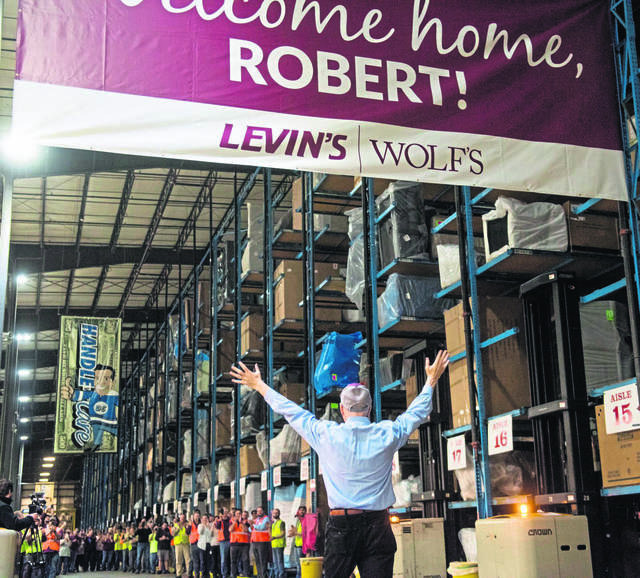https://triblive.com/opinion/editorial-levin-furniture-buy-was-smart-move/
Editorial: Levin Furniture buy was smart move

There is something deeply satisfying about a happy ending.
What happened last week with Levin Furniture is that kind of story.
True, a tale of last-minute redemption involving couches and glossy contemporary dining tables is probably not going to be a contender at the Oscars any time soon. (But, Tom Hanks, if you’re reading this, have we got a story for you.)
It still has all the elements. The chain of Pennsylvania and Ohio furniture stores has been a fixture for decades, but after being sold in 2017 to Michigan-based Art Van Furniture, the future was uncertain.
Robert Levin is the plucky hero, stepping in to save the day at almost the last minute. That’s not really an exaggeration. The Detroit Free Press broke the news of Art Van’s shuttering and liquidation literally an hour after Levin announced he was buying back the company his grandfather founded a century ago.
There were jobs in peril. The sale saves 1,200 people from wondering what their next moves are.
There were customers to consider. There was the role a sprawling business like Levin (and Wolf Furniture, which was also acquired in the move) play in the communities they serve.
If this had happened in December, Hallmark would already be optioning the rights for a Christmas movie.
But we can’t lose sight of the fact that it is still a business story.
Robert Levin didn’t step in as a philanthropist. He wasn’t Oprah Winfrey giving out cars to her audience. He made a smart business decision, but it isn’t the kind of decision we see often enough.
In the last 20 years, more and more business problems have been revealed to be motivated by moves that benefit the top of the pyramid by pulling out bricks from the bottom, a strategy bound to make a solid structure collapse.
But when Robert Levin sold his company in 2017, he shared the profit with his employees via healthy bonuses. In buying it back, he acknowledged both the importance of the workers and the customers.
Because it’s good business to value your employees. It’s good business to support your community because that support is returned. It is good business to aim for stability and longevity.
The Levin saga is clearly not over — and who knows what will happen in the sequel — but this chapter ended on the kind of applause line other businesses would do well to note.
Copyright ©2026— Trib Total Media, LLC (TribLIVE.com)
